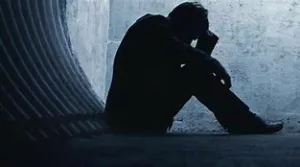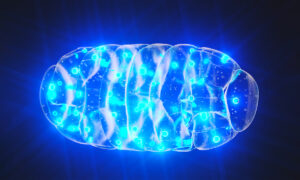Childhood-Onset Schizophrenia Is Rare But Serious
- Share
- Flip

Learning your child has schizophrenia—or suspecting your child may have it—can feel overwhelming and scary. But early identification and treatment are important in managing the symptoms and improving your child’s long-term prognosis.
Schizophrenia is a mental illness that causes people to interpret reality abnormally. It involves a range of cognitive, emotional, and behavioral problems that impair a child’s ability to function.
Prevalence
Onset usually occurs between the late teens and the mid-thirties. The peak age of onset for males is the early twenties and for females the late twenties, but it may occur at any age. Some studies estimate it affects approximately 1 percent of the American population.
Childhood schizophrenia, characterized by onset before age 13, is only found in 1 in 40,000 children. Childhood schizophrenia presents special challenges in terms of diagnosis and treatment.
Causes
Scientists haven’t found a single set of causes for schizophrenia. It’s suspected that there are multiple genetic and environmental factors that play a role:
- Genetic Factors – Family, twin, and adoption studies support a strong genetic component in schizophrenia. The lifetime risk of developing schizophrenia is 5 to 20 times higher in first-degree relatives of people who have been diagnosed with the illness. If an identical twin has the illness, the likelihood that the other twin will develop schizophrenia is over 40 percent.
- Environmental Factors – There may be some environmental factors that contribute to schizophrenia in children, especially if there are already genetic components at play. Prenatal infections, obstetric complications, and maternal famine may play a role.
Symptoms
Hallucinations, thought disorder, and flattened affect have been consistently found in children with schizophrenia. Delusions and catatonic symptomsoccur less frequently.
Childhood schizophrenia is often associated with cognitive delays. Cognitive decline typically occurs at the time of onset of schizophrenia. Intellectual deficits appear to be stable over time without continued deterioration.
Here are the symptoms of schizophrenia:
- Hallucinations – Seeing or hearing things that aren’t actually there
- Delusions – False ideas that are believed by the individual but not by others
- Disorganized thinking – Evidenced by derailed or incoherent speech
- Flat affect – Monotone, diminished facial expressions, and appear apathetic
- Paucity of speech or thought – Only speaking when prompted and replying with short answers
- Bizarre behavior – Inappropriate, disorganized, or odd behavior inappropriate for a child’s age
Course
The course of schizophrenia varies from person to person. But, there are hallmark phases that individuals tend to experience.
- Prodrome phase – Most individuals with schizophrenia experience some functional deterioration before the onset of psychotic symptoms. Social withdrawal, bizarre preoccupations, unusual behavior, academic failure, or a decline in hygiene and self-care may begin before any signs of psychosis.
- Acute phase – This phase is marked by prominent symptoms, such as hallucinations, delusions, disorganized speech and behavior, and a serious deterioration in functioning. This phase may last several months depending on the response to treatment.
- Recuperative/Recovery phase – After the acute psychosis subsides, there is generally a several-month period when the individual continues to experience a significant impairment. Flat affect and social withdrawal are often present.
- Residual phase – Children with schizophrenia may have several months or more between acute phases. However, most individuals will continue to be at least somewhat impaired. Some individuals never progress to residual symptoms and continue to have symptoms despite treatment.
When to See a Doctor
It’s hard to identify schizophrenia in children. Young children have excellent imaginations so it’s common for them to have imaginary friends with whom they carry on conversations. That type of pretend play doesn’t mean your child is having hallucinations.
Kids also aren’t good at telling adults about their symptoms. When young children are asked questions about hallucinations or delusions, many of them say yes. But, that doesn’t mean they have psychosis.
Instead, researchers believe they report having those symptoms because they have overactive imaginations, cognitive limitations, or they simply misunderstand the question. So asking your child questions like, “Do you ever see things that no one else sees?” isn’t likely to give you much insight into whether your child should see a doctor.
Symptoms also tend to begin gradually. Over time, however, a child may develop psychosis and the symptoms become much more obvious. If you notice developmental delays, strange eating rituals, bizarre behavior or ideas, change in academic performance, or social isolation, consult your child’s doctor.
Since schizophrenia in children is rare, there’s a good chance the symptoms may stem from something else. But it’s important to find out the reasons for the changes that you’re seeing.
Diagnosis
There isn’t a lab test that identifies schizophrenia. Mental health professionals make the diagnosis based on several factors, after gathering a full history, observing the child, and interviews with the parent and child. Other conditions must also be ruled out.
Many of the symptoms of schizophrenia in children are also found in other disorders, such as autism spectrum disorders, mood disorders with psychotic features, or obsessive compulsive disorder.
Medical conditions may also result in psychosis. Central nervous system infections, endocrine disorders, genetic syndromes, autoimmune disorders, and toxic exposures may cause children to exhibit symptoms similar to those found in schizophrenia.
Drug use may also cause psychosis. Hallucinogenic mushrooms, stimulants, inhalants, and cannabis are just a few of the drugs that may lead to psychotic symptoms. Prescription drug misuse may also lead to acute psychosis. Symptoms resolve within a few days to weeks after the drug is discontinued.
All of those other conditions must be ruled out before a diagnosis of schizophrenia can be made.
Treatments
Antipsychotic medication is the primary treatment for schizophrenia in children as well as adults. Individuals with schizophrenia are at significant risk of relapse if antipsychotic medication is discontinued. It’s essential for parents to maintain contact with physicians to monitor symptoms, side effects, and adherence.
Talk therapy may also be helpful to children with schizophrenia. Children and their parents may benefit from psychoeducation and problem-solving sessions. It may be important for siblings to get involved in therapy so they can understand their brother or sister’s behavior.
Social skills training, relapse prevention, and basic life skills training may be helpful. Some children with schizophrenia may need specialized education programs or vocational training programs.
If a child becomes a danger to herself or others, a psychiatric hospitalizationmay be necessary. Inpatient treatment can be helpful in getting symptoms under control.
Coping and Support
Learning your child has schizophrenia—or suspecting that she may have it—can feel scary and overwhelming. It’s important to learn as much as you can about schizophrenia in children, however, so you can best support and advocate for your child.
Ask your child’s doctor for resources on schizophrenia. Attending support groups for people who have a family member diagnosed with schizophrenia could serve as a wealth of information.
The National Alliance on Mental Illness, NAMI, may also be a valuable resource. NAMI is a mental health organization who has local affiliates who provide support, education, and services in communities throughout the United States. NAMI may be able to help you locate the resources, tools, and information you need to help your child.
It’s important to take care of yourself as well. Attend a support group or seek therapy for yourself. Managing your stress level will be key to helping you be best equipped to support your child.
Prognosis
Childhood-onset schizophrenia is associated with low intellectual functioning and higher rates of negative symptoms across the lifespan. According to a 2011 study published in Pediatric Clinics of North America, childhood-onset schizophrenia is associated with greater social deficits in adulthood compared to those with other mental illnesses.
It’s also been linked to lower level of employment and a lesser likelihood of living independently, compared to other psychiatric disorders.
Adolescents are at a higher risk of suicidal behavior during their first episode of psychosis. At least 5 percent of people who exhibited symptoms of schizophrenia before age 18 die by suicide or accidental death directly related to behaviors caused by their psychotic thinking.
Individuals with schizophrenia are at a higher risk of physical health conditions such as heart disease, obesity, hepatitis, diabetes, and HIV. There isn’t a cure for schizophrenia, but symptoms can be managed with treatment. Early intervention is key to improving the outcome for children with schizophrenia.







